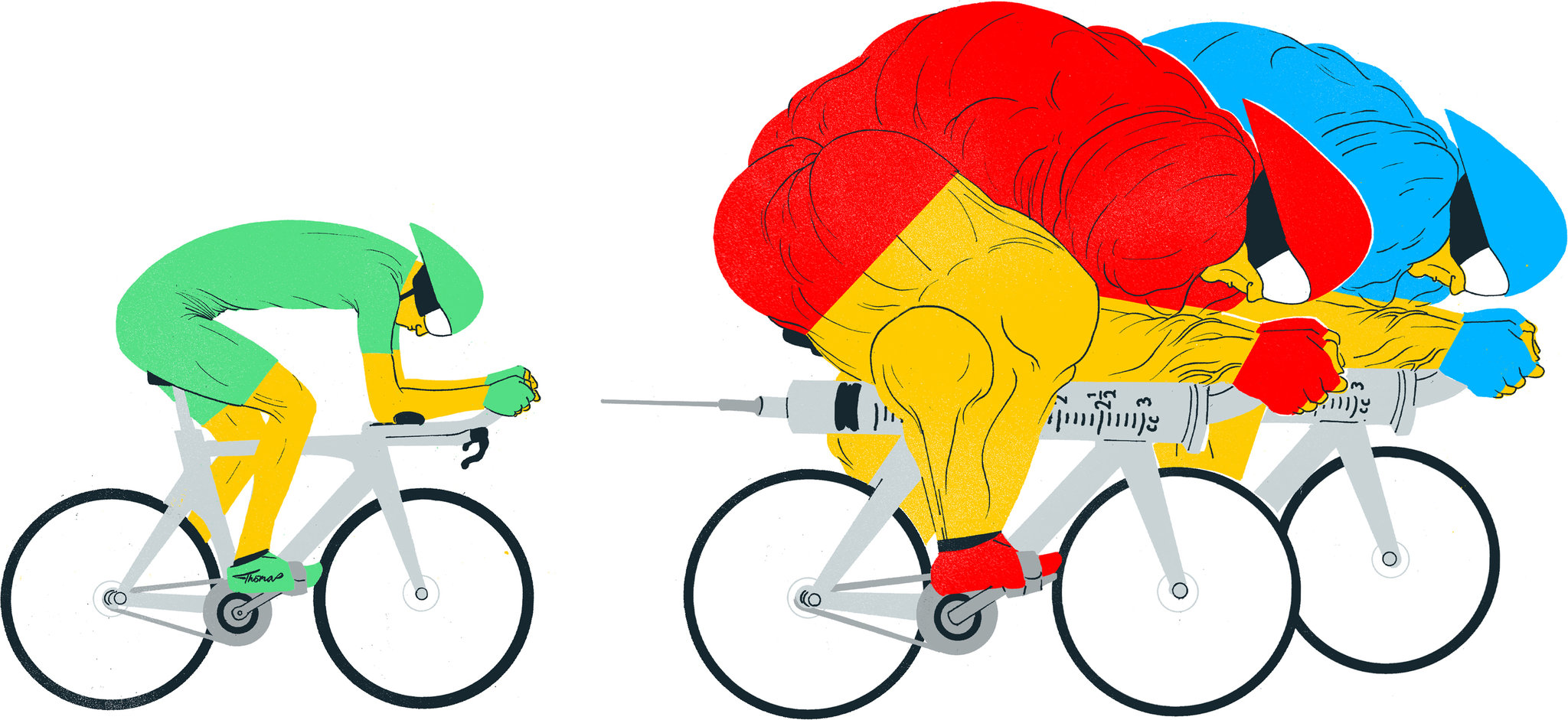

article by Heather Dyke
Revelations of doping typically provoke moral outrage. The received view is that doping is morally wrong because it’s cheating, and those caught doing it should be punished.
The rhetoric of the media, the World Anti-Doping Association (WADA) and sporting officials – and, in the Rio Games, some athletes themselves – all embody this idea. But why is doping morally wrong? Would it be morally wrong if it wasn’t against the rules?
Athletes who dope are seeking to gain a competitive advantage over their rivals. But athletes seek to gain competitive advantages in numerous ways and many of these are not banned.
If it’s wrong to enhance your performance by doping, why is it not also wrong to enhance your performance by taking dietary supplements, for instance, or carb-loading, or by training at altitude?
Identifying the moral culprit
Banned substances are typically synthetic so they artificially enhance athletic performance. If the point of sport is to test the natural limits of human nature then, by artificially extending those limits, doping is at odds with the essence of sport.
Many banned substances, such as anabolic steroids, are synthetic. But many naturally occurring substances, such as Erythropoietin (EPO), and techniques that involve no synthetic substances, such as blood doping, are also banned.
Conversely, many synthetic enhancements are permitted. Think of the latest in streamlined clothing, cycling helmets, and running shoes.
Another problem could be the intended effect. Blood doping is supposed to increase red blood cell supply, thereby increasing stamina. But other means of achieving this effect are permitted by WADA.
Altitude tents, for instance, are currently not on WADA’s prohibited list. But even if they were, would WADA also prohibit athletes from going to high-altitude locations to train, which has the same effect?
Perhaps the real problem lies with the coercive effect of doping: the so-called “arms race”. If some athletes are at an advantage because they are doping, it puts pressure on others to dope too.
But elite sport is already highly coercive.
To remain competitive, athletes have to submit themselves to harsh training regimes and controlled diets that potentially cause long-term harm. If such measures produce better results, then all athletes have to adopt these measures.
Yet no one suggests there’s anything wrong with this kind of coercion in sport.
Cheating and unfair advantage
The moral outrage points to a simpler reason for the wrongness of doping. Doping is cheating because it’s against the rules. But why is it against the rules? Because it’s cheating, of course!
This argument moves in an embarrassingly small circle. And it doesn’t help to expand the circle: doping is cheating, and cheating is wrong, so doping is wrong. But why is doping cheating? Because it is banned.
And so we arrive at the nub of the problem: what justifies the rule banning doping in the first place?
The most obvious answer is that doping confers an unfair advantage. But the advantage is only unfairly gained because doping is banned: by contravening the rules the doping athlete gets an advantage that her more rule-abiding competitors don’t get.
There are lots of ways in which athletes seek to gain advantage over their rivals: by using the best coaches, training techniques, dietary regimes, and so on. But we view these methods of gaining advantage as fair because they are within the rules.
The unfairness of the advantage secured by doping seems to be conferred simply by the fact that it is against the rules, and therefore cheating.
A way forward
If there’s no prospect of a clear, non-arbitrary justification for why doping is wrong, one option would be to allow doping in some form or other. Many find that unappealing, presumably because the moral intuition that doping is wrong is so strongly felt.
But if it is to be maintained, we need to find another way of justifying it.
Here’s one suggestion: give up the view that doping is intrinsically morally wrong, and replace it with the view that the ban on doping is justified in the same way that the rules of any particular sport are justified.
The rules of any sport are arbitrarily designed with various aims in mind: to facilitate an even contest between the competitors; to reward certain skills and virtues; to produce an entertaining spectacle; and so on. They have no intrinsic moral significance.
The rule banning doping in any given sport could simply be one of these rules, no more morally weighty than the offside rule in football. Doping would then be cheating in just the same way as taking the subway for part of a marathon would be cheating.
The International Olympic Committee’s recent decision not to ban the entire Russian team, leaving international sporting federations to rule on individual athletes, can be seen as a move in this direction. Rather than adopting a uniform, homogeneous view on doping across all sports, it has delegated to individual sporting bodies decisions about how to deal with doping athletes within that sport.
Perhaps we should curb our moral outrage. Rules against doping in a particular sport are no more morally weighty than any other rule in that sport.




